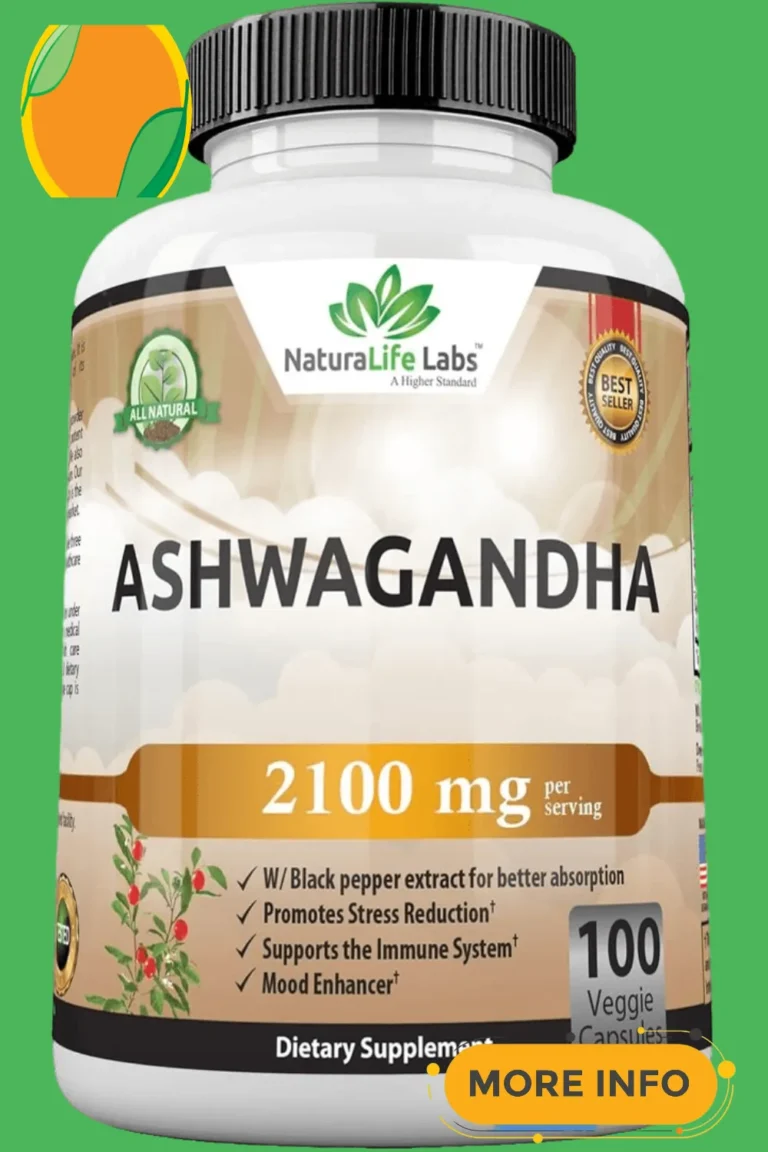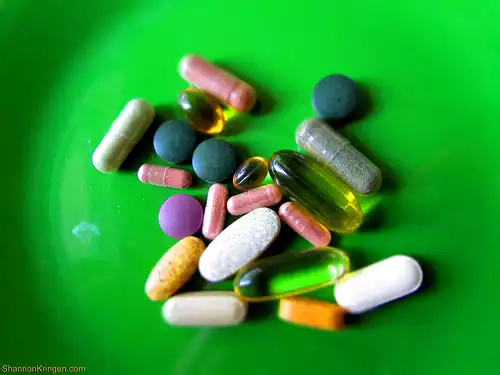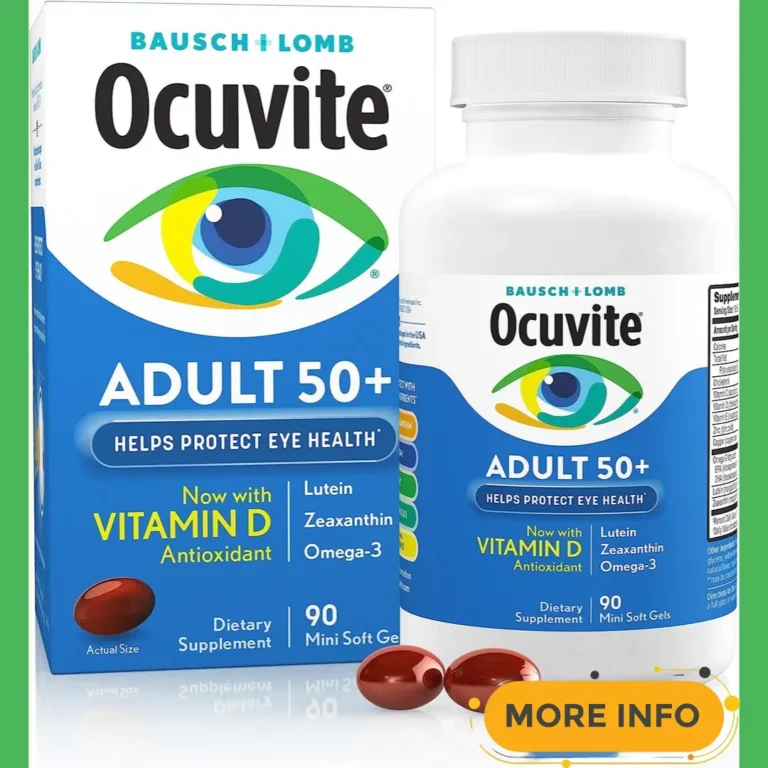Vitamins for Energy
Ever found yourself in the middle of the afternoon slump, reaching for yet another cup of coffee only to feel more jittery than energized? While caffeine might give you a temporary boost, it often leaves you crashing just as quickly.
What if there was a more sustainable way to keep your energy levels high and your mind sharp throughout the day? Enter: vitamins for energy.
These essential nutrients not only fuel your body but also play a crucial role in maintaining mental clarity and overall well-being.
Imagine waking up every morning feeling refreshed, ready to conquer your day without relying on stimulants.
Vitamins like B12, D3, and iron are vital components that can help transform this dream into reality.
By understanding how these vitamins work within your body, you can make informed choices that enhance your daily vitality and long-term health.
In this article, we’ll dive into the science behind these powerhouse nutrients and explore how they can become a natural part of your energy-boosting toolkit.
In today’s fast-paced world, many individuals are constantly seeking ways to boost their energy levels and improve their overall well-being.
While factors such as diet, exercise, and sleep play essential roles in maintaining optimal energy levels, the importance of vitamins should not be overlooked.
Vitamins are vital micronutrients that are necessary for various bodily functions, including energy production.
In this article, we will explore the role of vitamins in enhancing energy levels and discuss the best vitamins to incorporate into your daily routine for sustained vitality.
Whether you are feeling fatigued, looking to increase your productivity, or simply aiming to maintain a high energy level throughout the day, understanding the significance of vitamins for energy is crucial.
From vitamin B12 to vitamin D, each vitamin plays a unique role in supporting energy metabolism and combating fatigue.
By incorporating the right vitamins into your diet and lifestyle, you can experience a noticeable improvement in your energy levels and overall well-being.
Join us as we delve into the world of vitamins for energy and discover how you can harness the power of these essential nutrients to supercharge your vitality.
Table of Contents Vitamins for Energy
Vitamin B12: Boosts energy production
Vitamin B12, a key player in energy metabolism, plays a critical role in the body’s production of energy.
It aids in the conversion of food into glucose, the body’s primary source of fuel, which is then used to produce energy.
Additionally, Vitamin B12 assists in the synthesis of red blood cells, which are responsible for transporting oxygen throughout the body.
This essential vitamin also supports neurological functions, contributing to overall cognitive health and well-being.
Individuals with a deficiency in Vitamin B12 may experience fatigue, weakness, and decreased energy levels, highlighting the importance of ensuring adequate intake of this vital nutrient for optimal energy production.
Iron: Enhances oxygen flow, vitality
Iron plays a significant role in enhancing oxygen flow and vitality within the body.
As a crucial component of hemoglobin, iron is responsible for binding oxygen in the lungs and transporting it to various tissues and organs, ensuring efficient oxygen delivery to cells for energy production.
Adequate iron levels support red blood cell formation, thereby optimizing oxygen circulation and overall vitality.
Iron deficiency can lead to anemia, characterized by fatigue, weakness, and reduced stamina due to insufficient oxygen supply to tissues.
Including iron-rich foods in the diet or considering iron supplementation can help maintain optimal energy levels and promote overall well-being.
Vitamin D: Supports brain function, energy
Vitamin D, often referred to as the “sunshine vitamin,” plays a crucial role in supporting brain function and energy levels in the body.
Beyond its well-known benefits for bone health, vitamin D also contributes to cognitive functions by aiding in the production of neurotransmitters important for brain signaling.
Additionally, adequate levels of vitamin D have been associated with improved mood and cognitive performance.
Furthermore, this essential vitamin plays a role in energy metabolism by assisting in the conversion of food into energy, helping combat feelings of fatigue and boosting overall vitality.
Regular exposure to sunlight, consumption of vitamin D-rich foods, or supplementation can help maintain optimal levels of this vital nutrient for enhanced brain function and sustained energy levels.
Magnesium: Regulates energy production processes
Magnesium, a key mineral for overall health and well-being, plays a vital role in regulating energy production processes within the body.
As an essential mineral involved in over 300 enzymatic reactions, magnesium is crucial for converting food into energy and supporting cellular function.
Specifically, magnesium plays a key role in the synthesis of adenosine triphosphate (ATP), the primary energy currency of cells, aiding in the activation of ATP through phosphorylation.
Furthermore, magnesium is essential for the proper functioning of mitochondria, the powerhouse of cells, where energy production occurs.
By ensuring adequate magnesium intake through dietary sources such as nuts, seeds, leafy greens, and whole grains, individuals can support optimal energy metabolism, combat fatigue, and maintain peak physical and cognitive performance.
Coenzyme Q10: Boosts cellular energy
Coenzyme Q10, a naturally occurring antioxidant produced by the body, is fundamental for cellular energy production.
This vital enzyme plays a crucial role in the electron transport chain within mitochondria, facilitating the conversion of nutrients into adenosine triphosphate (ATP), the energy currency of cells.
By aiding in the production of ATP, Coenzyme Q10 supports various essential processes including muscle contraction, nerve signaling, and overall cellular function.
Additionally, Coenzyme Q10 acts as a potent antioxidant, protecting cells from oxidative damage and promoting overall cellular health.
Incorporating Coenzyme Q10 into your daily routine through supplementation or consumption of CoQ10-rich foods like organ meats, fish, and whole grains, can help boost cellular energy levels, enhance vitality, and support optimal physiological functioning.
Vitamin C: Supports adrenal function, energy
Vitamin C is an essential nutrient that plays a vital role in supporting adrenal function and maintaining energy levels within the body.
This water-soluble vitamin acts as an antioxidant, protecting cells from oxidative stress and supporting overall immune health.
In addition to its antioxidant properties, Vitamin C is crucial for the synthesis of neurotransmitters like dopamine and norepinephrine, which are essential for regulating mood and energy levels.
Furthermore, Vitamin C aids in the absorption of iron, a mineral necessary for the production of healthy red blood cells that transport oxygen throughout the body, contributing to sustained energy levels.
Including Vitamin C-rich foods such as citrus fruits, strawberries, bell peppers, and leafy greens in your diet can help ensure adequate intake of this important nutrient, supporting adrenal function, energy production, and overall well-being.
Ginseng: Enhances physical endurance, stamina
Ginseng, a powerful herb known for its numerous health benefits, has long been recognized for its ability to enhance physical endurance and stamina.
By incorporating ginseng into your daily routine, you can experience a natural boost in energy levels, allowing you to sustain physical activity for longer periods.
Ginseng helps to improve overall physical performance by increasing oxygen utilization and reducing fatigue, making it an ideal supplement for individuals seeking to enhance their endurance during workouts or other physical activities.
This adaptogenic herb not only promotes physical stamina but also supports immune function and enhances mental clarity, making it a valuable addition to your regimen for overall well-being and vitality.
Creatine: Boosts muscle energy production
Creatine supplementation has garnered widespread attention in the fitness and athletic communities due to its well-documented ability to enhance muscle energy production and athletic performance.
By increasing the body’s store of phosphocreatine, creatine aids in the rapid regeneration of adenosine triphosphate (ATP), the primary source of energy for muscle contractions during high-intensity exercises.
This leads to improved strength, power output, and overall exercise capacity, allowing individuals to push through challenging workouts and achieve greater gains in muscle mass and performance.
Additionally, creatine has been shown to support muscle hydration and protein synthesis, further contributing to enhanced muscle growth and recovery.
When combined with a consistent training regimen, creatine supplementation can serve as a valuable tool for individuals looking to optimize their physical performance and achieve their fitness goals.
In conclusion, the role of vitamins in enhancing energy levels cannot be overstated.
While it is important to maintain a balanced diet and healthy lifestyle, the addition of certain vitamins can play a significant role in boosting energy and overall vitality.
By understanding the specific vitamins that promote energy production and incorporating them into our daily routine, we can optimize our physical and mental performance.
It is recommended to consult with a healthcare professional or a registered dietitian before starting any new supplement regimen to ensure it aligns with individual health needs and goals.
Remember, vitamins are not a quick fix for chronic fatigue or other underlying health issues, but when used as part of a holistic approach to wellness, they can offer valuable support in maintaining optimal energy levels.
FAQ
What are the most effective vitamins for boosting energy levels?
Vitamins such as B vitamins (B12, B6, B9), vitamin D, iron, magnesium, and coenzyme Q10 are known to be effective in boosting energy levels.
B vitamins play a crucial role in converting food into energy, while vitamin D supports overall energy metabolism.
Iron is essential for oxygen transport in the body, aiding in energy production.
Magnesium helps regulate muscle and nerve function, contributing to energy levels.
Coenzyme Q10 is involved in the production of energy in cells.
These vitamins work together to support energy production and overall vitality.
Consulting a healthcare provider is recommended before starting any new supplement regimen.
How do vitamins like B12 and D contribute to increased energy levels?
Vitamins B12 and D play crucial roles in energy production.
Vitamin B12 helps convert food into energy by aiding in the formation of red blood cells and supporting the functioning of nerves.
Vitamin D supports the absorption of calcium, which is essential for muscle function and overall energy levels.
Together, these vitamins contribute to maintaining healthy energy levels by ensuring proper nutrient absorption and utilization in the body.
Are there any potential risks or side effects associated with taking vitamin supplements for energy?
While vitamin supplements can enhance energy levels, there are potential risks and side effects associated with their consumption.
Taking excessive amounts of certain vitamins, especially fat-soluble ones like A, D, E, and K, can lead to toxicity.
Additionally, interactions with medications, allergic reactions, and digestive issues may occur.
It’s important to consult a healthcare provider before starting any supplement regimen to ensure safety and efficacy.
Can a deficiency in certain vitamins lead to fatigue and decreased energy levels?
Yes, deficiencies in vitamins such as vitamin B12, vitamin D, and iron can lead to fatigue and decreased energy levels.
These vitamins play crucial roles in energy production and metabolism within the body.
Inadequate levels of these vitamins can impair the body’s ability to generate energy, resulting in feelings of tiredness and low energy.
It is important to maintain a balanced diet and ensure adequate intake of essential vitamins to support overall energy levels and well-being.
What are some natural sources of vitamins that can help improve energy levels without the need for supplements?
Some natural sources of vitamins that can help improve energy levels include fruits rich in vitamin C, such as oranges and strawberries, which can boost immunity and energy production; leafy green vegetables like spinach and kale, which are high in vitamins K, A, and C; nuts and seeds like almonds and sunflower seeds, which provide vitamin E for energy metabolism; and fatty fish like salmon and mackerel, which contain omega-3 fatty acids that support brain function and energy levels.
Consuming a balanced diet with these natural sources can help increase energy without the need for supplements.







